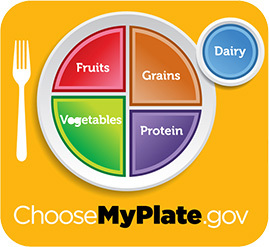- About Us
- For Patients
-
Services
Health Care Services
- After Hours Care/ Access Hope
- Behavioral Health Services
- Chiropractic Care
- Chronic Disease Management
- Dental Health
- The Diabetes Institute
- Endocrinology
- Family Medicine
- Hepatitis Services
- HIV/ AIDS Services
- HopeXpress
- Infectious Diseases
- Internal Medicine
- Lab Services
- Language Services
- Pain Management
- Pediatric & Adolescent Care
- Pharmacy
- Primary Care
- Radiology
- Rheumatology
- School-based Services
- Senior Health
- Substance Use Treatment
- Telehealth
- Veterans Services
- Women's Health Services
Programs
-
Locations
Florence County
Darlington County
Williamsburg County
Clarendon, Orangeburg, & Aiken County
-
Community
Community Outreach
- Contact Us
- Become a Patient
What is Diabetes?
Diabetes is a condition of having too much glucose (a kind of sugar) in the blood. Most of the food that we eat is turned into glucose for our bodies to use for energy. The pancreas, an organ near the stomach, makes a hormone called insulin that helps glucose move out of our blood and into the cells of our bodies. With diabetes, your body either doesn’t make enough insulin or can’t use its own insulin, as well as it should. This causes extra sugar in your blood. Diabetes can cause serious health problems like blindness, heart disease, kidney failure, and foot amputations. In the United States, diabetes is the seventh leading cause of death.
How Do I Know if I Have Diabetes? (signs of diabetes)
People who think they might have diabetes must visit their provider for a diagnosis. These are common symptoms and people may have some or none of these:
- Need to pass more urine than normal
- Very thirsty
- Weight loss when you’re not trying
- Very hungry
- Blurry vision
- Tingling or numbness in hands or feet
- Tired and sleepy (more than usual)
- Very dry skin
- Sores that are slow to heal
- More infections than usual
If you have nausea, vomiting, or stomach pains with some of these symptoms, it could be an emergency situation and you would need to contact your provider or go to urgent care for medical attention.
Could I Have Pre-diabetes?
Prediabetes is when the blood sugar is high but not high enough to be diagnosed with diabetes. About 1 in 3 people have prediabetes and this can lead to diabetes and increases the risk of stroke and heart disease. It can be reversed! Eating healthy and regular physical activity along with weight loss (if you’re overweight), can help decrease the risk of developing diabetes. How do you know if you have prediabetes? Take this quiz to find out!
Diabetes Self-Management Education
Our program will help you learn all about diabetes and how to develop skills to manage your diabetes. We will work on all the different areas of what you need to know to take the best care of yourself. We offer group or individual sessions to fit your schedule. The program includes:
- An hour-long assessment – the diabetes educator learns about your needs and lifestyle so they can design a program just for you.
Other services and topics covered:
- Carbohydrate counting and meal planning
- Foot care
- Exercise guidelines
- Medication management
- Preventing long term problems from high blood sugar
- Blood sugar testing and target goals
- Insulin and insulin pump usage (as needed)
- Stress and time management
- Retinal eye screening
National Diabetes Prevention Program
Our coaches will give you the tools and support you need to help prevent or delay diabetes. This year long group program will teach you new skills focusing on healthy eating and physical activity and how to make lifestyle changes over time.
Medical Nutrition Therapy/ Nutrition Counseling
Are you wondering what you can eat on a special diet or for weight loss? We provide one-on-one sessions for many different nutrition related conditions including (but not limited to):
- Weight management
- High blood pressure
- High cholesterol
- Kidney disease
- Pre-diabetes
The first session is an hour and follow up sessions are 30-60 minutes depending on your need. To round out the program, the following is included:
- Exercise guidelines
- Stress and time management
- Lifestyle coaching to help you meet your goals with success!
Download the HopeHealth Plate Planner to learn more about food portions. 
Community Health Workers
Patients often experience significant barriers to care that may place them at risk of developing diabetes or affect their ability to properly manage diabetes. HopeHealth is committed to improving and expanding current services available for diabetes prevention and management The diabetes community health worker is a liaison between the patient and clinical staff, and assists in addressing those barriers and providing additional support.
Our diabetes community health workers can: help you understand diabetes and provide education on prevention and management, provide case management to track your progress, help you navigate HopeHealth services and programs, and help connect you with outside resources to address any physical/basic support needs.
Diabetes community health workers are available for one-on-one and group education, home visits, community events, and health fairs.
To schedule an appointment call Nikita Alford at (843) 359-4377.
Providers
- Christy H. Evans, DNP
- Anita Longan, MS, RDN, CDE, BC-ADM Registered Dietitian/Nutritionist, Certified Diabetes Educator and DSME/DPP Coordinator
- Caitlin Guess, MPH, RDN, CSR, LD Registered Dietitian/Nutritionist, Certified Specialist in Renal Nutrition
- Rona Ewart, RDN, LDN, Registered Dietician Nutritionist
- Padigar Shyamanand Tantry, MD, Endocrinologist
- Franciso X. Barrera, MD, Endocrinologist
- Melissa Gonzalez Lara, MD, Endocrinologist
- Wendy Taylor, RN, CDCES